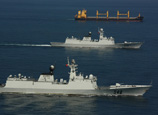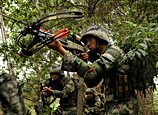
Facing the economic sanctions of Western countries, Tehran implemented a series of measures to crack down on the behavior of storing up goods and raising their prices within the state and launched a diplomatic offensive and made friends widely outside the state.
As a whole, the United States is stronger than Iran, but Iran has a favorable climatic and geographical condition in the gulf area.
Fourth, the four transforming Arabic countries start to keep their distance from the United States. The new regimes of Tunisia, Egypt, Libya, and Yemen draw lessons from the past and consecutively adjust their foreign policies from pro-American to relatively independent, balanced, and non-aligned.
Fifth, the United States lost its "boilerplate" effect in Iraq.
Washington spent nine years promoting Western-style democracy in Iraq. The effort to build a "boilerplate" in the Middle East cost the United States 1 trillion dollars and about 40,000 casualties.
But since the U.S. troops left Iraq by the end of 2011, the United States' boilerplate has become an empty shell. The upper classes, sectarian and ethnic groups, local forces, and the central government in Iraq fight fiercely; terrorist bombings, major or fatal events occur frequently; and the society is in turmoil.
Besides, Baghdad deliberately acts contrary to the United States on the matters of Syria and Iran and gives the Americans a bitter taste. The "universal values" propagated by the United States are not working, with only itself to blame.
 |














 Nutritious lunch provided in Taipei's elementary school
Nutritious lunch provided in Taipei's elementary school


![]()
